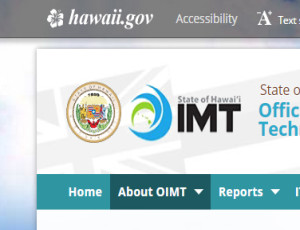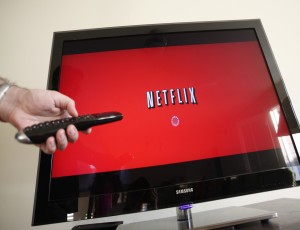No More Netflix for the Hawaii State Network

SHARE
The Hawaii State Office of Information Management and Technology (OIMT) has announced a new policy effective immediately of "blocking video streaming services (including but not limited to Netflix and Hulu) on the State Network," eliminating entertainment videos for state employees, who watched between 100 and 300 hours on Netflix during the week of July 28 – August 4, roughly the equivalent of two to nine full-time employees doing nothing else, according to Hawaii News Now, citing OIMT as the data source.
 Employees still may watch "YouTube and nonpaid Flash media . . . for communication and educational purposes," OIMT says in the memorandum of the new policy announcement, but no more Netflix, Hulu, or any other entertainment medium.
Employees still may watch "YouTube and nonpaid Flash media . . . for communication and educational purposes," OIMT says in the memorandum of the new policy announcement, but no more Netflix, Hulu, or any other entertainment medium.
OIMT explained that under the state Department of Human Resources Development (DHRD) Policy 103.001, "Acceptable Uses of Information Technology Resources," "The use of the state's information technology (IT) resources by its employees is a privilege . . . for furthering state business in service to the citizens of Hawaii." For this reason, all state executive, judicial, and legislative employees have a duty to follow appropriate equipment usage guidelines and not to waste IT resources by deliberate acts that "unfairly monopolize resources to the exclusion of others."
State IT resources are finite, OIMT continued, and to expand or increase them to accommodate employee entertainment purposes would not be a proper use of limited state funds. The State Network Team discovered that the use of media streaming services already had monopolized a significant and excessive portion of the state's available Internet bandwidth. OIMT concluded that the new policy of blocking entertainment videos was necessary "to preserve sufficient online access for state business."
"Mahalo for your kakua," the OIMT memorandum closes ("Thank you for your assistance/cooperation."), inviting comments and questions to oimt@hawaii.gov, the office e-mail address
 One computer technology consultant approves the OIMT action for eliminating "the possibility for people to misinterpret what state workers are doing. So if they discontinue that access, there's no question" about such misuse of state resources for entertainment. "How much [video] do we need and how much of it is being consumed for things we shouldn't be paying for," asks another, who has worked in the technology field for two decades.
One computer technology consultant approves the OIMT action for eliminating "the possibility for people to misinterpret what state workers are doing. So if they discontinue that access, there's no question" about such misuse of state resources for entertainment. "How much [video] do we need and how much of it is being consumed for things we shouldn't be paying for," asks another, who has worked in the technology field for two decades.
Technology enables supervisors to detect from specific Internet Protocol addresses computers on which employee culprits do the watching, on which days, and at which times, but OIMT says there are no plans to discipline workers who watched too much entertainment on the job, though they now must watch Netflix on their own personal time.
The official DHRD position under Policy 103.001, however, remains that use of the Internet for downloading audio, video, and image files is "strictly prohibited" unless work-related. Employees who fail to comply with this prohibition, DHRD advised in a recent memorandum to other department directors and their deputies, could face curtailment, restriction, or total denial of computer usage, disciplinary action as drastic as termination, and civil or criminal liability.
Led by the State of Hawaii Chief Information Officer, OIMT and the Information and Communication Services Division of the Hawaii Department of Accounting and General Services direct government business and technology transformation efforts for the archipelagic state. Recognizing the important role of technological innovation in Hawaii's transformation, Act 200, 2010 Session Laws of Hawaii, established the full-time position of Chief Information Officer with oversight of both offices. Current incumbent Todd Nacapuy received his appointment in April 2015, when he pledged that, "From planning and vendor selection to implementation and troubleshooting, the department will ensure that the right systems are in place to make government more efficient and effective."
RANDOM NETFLIX MOVIES
-
Orange County 2002 • 122 min

-
American Graffiti 1973 • 110 min

-
My Name is Nobody 2014 • 115 min

-
Drastic Measures 2022 • 80 min









